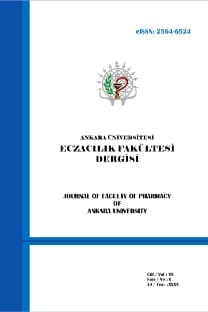AKUT İNMELİ HASTALARIN SERUM VE SEREBROSPİNAL SIVILARINDA ESER ELEMENT VE ELEKTROLİT DÜZEYLERİ
Eser elementler, beyin gelişimi ve fonksiyonunda önemli etkilere sahiptir. Çinko elementi santral sinir sistemi fonksiyonu için önemli birçok metalloenzimin gerekli bir komponentidir. Magnezyum iyonları serebral sirkülasyonun endojen vazodilatörü olarak etki göstermektedir. Bu çalışmanın amacı, akut inmede çinko, bakır, demir ve magnezyumun CSF ve serum konsantrasyonlarını tayin etmek ve klinik çalışmalarla bizim bulgularımızın olası korelasyonlarını tartışmaktır. Çalışmamızda akut inme teşhisi konmuş 51 hasta ve 15 sağlıklı kişinin serum ve CSF bakır, çinko, magnezyum, demir, sodyum ve potasyum düzeyleri ölçüldü. Yaş, sigara içme durumu, alkol kullanma alışkanlığı ve cinsiyet gibi faktörlerin serum ve CSF bakır, çinko, magnezyum, demir, sodyum ve potasyum konsantrasyonları üzerine olan etkileri istatistiksel olarak değerlendirildi. Bu düzeyler, kontrol grubu ile karşılaştırıldığında bakır hariç, istatistiksel olarak anlamlı bir farklılık gözlenmedi. Ölçülen parametrelerin serum ve serebrospinal sıvı düzeyleri ile yukarıdaki faktörler arasında görünürde bir ilişki yoktu. Yalnız magnezyuma ilişkin bir korelasyon bulundu. Çalışmamızda akut inmede eser element ve elektrolit düzeylerinin değişip değişmediğini ve kan-beyin bariyerini geçip geçmediğini serum ve serebrospinal sıvıda araştırdık
THE LEVELS OF TRACE ELEMENTS AND ELECTROLYTES IN SERUM AND CEREBROSPINAL FLUID OF PATIENTS WITH ACUTE STROKE
Trace metals have important influences on brain development and function. The trace element zinc is a necessary component of many metalloenzymes, some of which are of importance for the function of the central nervous system. Magnesium ions act as an endogenous vasodilators of the cerebral circulation. The aim of the present study was to determine the CSF(cerebrospinal fluid) and serum concentration of the metals zinc, copper and magnesium in acute stroke and to discuss the probable correlations of our findings with the clinical conditions. In our study, serum and CSF copper, zinc, magnesium, iron, sodium and potassium levels of 51 patients diagnosed as acute stroke patients and of 15 healthy subjects were measured. The effects of factors such as age, smoking status, drinking habits and sex on serum and CSF copper, zinc, magnesium, iron, sodium and potassium concentrations were evaluated statistically. These levels were statistically no significant when compared to that of control group except CSF copper. Our data indicate that there is no apparent association between serum and CSF copper, zinc, magnesium, iron, sodium and potassium levels and above factors. There is no statistically significant relationship between serum iron, sodium and potassium concentrations and CSF iron, sodium and potassium concentrations. Only significant correlation was found between serum and CSF magnesium concentrations. We investigated whether there was a change of trace element and electrolyte levels and traverse the blood-brain barrier in serum and CSF
Keywords:
Transition metals, Copper, Zinc, Magnesium, Iron, Acute stroke,
- ISSN: 1015-3918
- Yayın Aralığı: Yılda 3 Sayı
- Başlangıç: 2016
- Yayıncı: Ankara Üniversitesi Eczacılık Fakültesi
Sayıdaki Diğer Makaleler
AKUT İNMELİ HASTALARIN SERUM VE SEREBROSPİNAL SIVILARINDA ESER ELEMENT VE ELEKTROLİT DÜZEYLERİ
Emine KÖKSALDI, Aysun HACIŞEVKİ, Meral TORUN
Evren ALĞIN YAPAR, Tamer BAYKARA
KRONİK RENAL YETMEZLİKLİ HASTALARDA HEMODİYALİZİN OKSİDATİF STRES ÜZERİNDEKİ ETKİSİ
